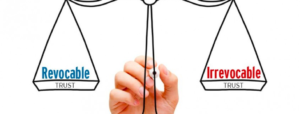
Your children are important to you. You will spend a good part of your life sacrificing and caring for them. But, what will happen to them when you are gone?
Typically, when people think of Estate Planning, they think of wills and property, probate and money, burials and wakes. As a parent, however, you should be thinking about your children, and custody, and guardians, and trusts, and caring for their future if you are not around.
Who Gets the Children?
A married person generally assumes that his or her spouse will care for the children if the married person dies. However, with the many complicated family situations that exist today, nothing should be taken for granted. If a mother passes away, the natural or adoptive father has a right to custody of the children, even if he does not live with the family. If the father dies, the mother gets custody.
For example, Joan and Henry have been married for 10 years. Joan has two children by a previous marriage to Frank. They are Bill, 12 years old, and Susan, 11 years old. Joan and Henry have three children together- 7, 8 and 9 years old. If Joan dies, Bill and Susan will pack their bags, leave the brothers and sisters they have grown up with, and go live with Frank.
In another case, Suzy divorced Sam and took their two children with her. If she dies, Sam gets the children back, and may get control of all the money and property Suzy leaves behind.
On the other hand, a married couple may die in the same accident leaving their children with no parents. Similarly, a widow or widower may pass on, leaving the children orphaned. If the parent or parents have not planned ahead, the grandparents are first in line for custody, then uncles and aunts and other relatives.
A recent case in San Antonio involved an orphaned child we’ll call Billy. Billy’s paternal grandfather lives in California. Billy’s paternal grandmother lives in San Antonio. Billy’s maternal grandparents live in Idaho. They all want custody.
Billy now has a lawyer (called an attorney ad litem). The lawyer’s job is to help the judge find out who is best qualified and suited to take care of Billy. The lawyer had to visit each grandparent, with a professional social worker or family counselor in tow, and make recommendations to the judge. The cost of the trips, the lawyer’s fees, the payments for the counselor, the court costs, and other expenses will all come out of Billy’s inheritance.
Billy’s parents could have kept this situation from arising by designating a guardian for Billy in their wills. The will of the last parent to die takes precedence, but with foresight, the two parents would be in agreement as to who the guardian would be.
Who Gets the Money and Property?
The person who gets custody of the children is called the Guardian of the Person. The person who gets custody of the children’s money and property is called the Guardian of the Estate. They are usually the same person.
A natural parent who becomes Guardian of the Person has the legal right to be Guardian of the Estate. However, there are ways to prevent them from managing the bulk of the estate.
Let’s look at Suzy again. Her ex-husband will get custody of the children. He will also be Guardian of the Estate. Suzy, however, was a hard worker and smart lady. In her will, she set up a trust for her children and named her Uncle Patrick as the Trustee. Sam gets the children, but the money goes to the trust. Uncle Patrick is there to make sure that the children are well cared for.
Parents of older children are often concerned with the money management abilities of their children and the children’s spouses. A trust, created in their parent’s will, can provide a means of professional management of the parent’s assets. The trust can be established in the will naming a reliable individual or bank as Trustee. This would ensure that the assets are used in the manner the parent desires.
Left Out in the Cold
Finally, consider the case of Harry and Dotty. Harry married as a young man and had children. He divorced and lost contact with his children. Later, he remarries to Wanda.
Although they did not have children together, Wanda had a small daughter, Dotty. Harry raises Dotty as his own, but does not adopt her. When Dotty is eight years old, Wanda dies with a will leaving her entire estate to Harry.
Harry and Dotty were very close. When Dotty is 14, Harry dies without a will. His entire estate goes to his children by his first marriage. Dotty inherits nothing from Harry. Not a dime. Not even her mother’s jewelry. Not even her grandmother’s china. Nothing.
Planning Ahead
Estate Planning is, as you can see, more involved and more important for parents. Parents have to plan where the money and property goes. More important, however, parents must plan for their children’s future. A few minutes now can prevent years of heartache later. Are your children worth those few minutes?


 I recently got a call from John who was concerned about his mother, Susan. She had been forgetting to pay her bills and had recently suffered a bad fall. John realized that his mother would increasingly need his help in the coming days and months, yet he had no legal authority to do so. John wanted to know if I could help his mother get a Durable Power of Attorney in place. I told John that it may be too late.
I recently got a call from John who was concerned about his mother, Susan. She had been forgetting to pay her bills and had recently suffered a bad fall. John realized that his mother would increasingly need his help in the coming days and months, yet he had no legal authority to do so. John wanted to know if I could help his mother get a Durable Power of Attorney in place. I told John that it may be too late.
 Trusts are used in estate planning for various purposes, including: to provide tax reduction benefits, to hold property for a person until he or she is mature enough to manage it, to hold property for distribution only for specific purposes, to protect property from the claims of a beneficiary’s creditor, to protect property from the claims of an estranged spouse of a beneficiary, to provide for the management of property with distributions for a beneficiary’s long term support, and for any other reason that the grantor desires. The trust agreement drafter writes the agreement with the grantor’s intentions in mind.
Trusts are used in estate planning for various purposes, including: to provide tax reduction benefits, to hold property for a person until he or she is mature enough to manage it, to hold property for distribution only for specific purposes, to protect property from the claims of a beneficiary’s creditor, to protect property from the claims of an estranged spouse of a beneficiary, to provide for the management of property with distributions for a beneficiary’s long term support, and for any other reason that the grantor desires. The trust agreement drafter writes the agreement with the grantor’s intentions in mind.
 Trusts can also be revocable and irrevocable. A revocable trust is a trust which the grantor (the person who creates the trust) can amend, cancel or revoke at any time. An irrevocable trust cannot be cancelled, revoked or even amended after it is made. Since testamentary trusts are not created until the grantor has died, they are irrevocable upon the grantor’s death. Prior to the grantor’s death, they have not gone into effect, so the grantor could change his Will or Revocable Living Trust to change the provisions of a testamentary trust or to eliminate it completely. For example, the grantor could change his Will to provide “I leave $50,000 to John to hold for the benefit of my niece, Nancy, to be held until she is 25 years old.” Under the change, John cannot use the money to pay for Nancy’s education, and he must turn over all the trust assets to Nancy when she reaches 25 years of age.
Trusts can also be revocable and irrevocable. A revocable trust is a trust which the grantor (the person who creates the trust) can amend, cancel or revoke at any time. An irrevocable trust cannot be cancelled, revoked or even amended after it is made. Since testamentary trusts are not created until the grantor has died, they are irrevocable upon the grantor’s death. Prior to the grantor’s death, they have not gone into effect, so the grantor could change his Will or Revocable Living Trust to change the provisions of a testamentary trust or to eliminate it completely. For example, the grantor could change his Will to provide “I leave $50,000 to John to hold for the benefit of my niece, Nancy, to be held until she is 25 years old.” Under the change, John cannot use the money to pay for Nancy’s education, and he must turn over all the trust assets to Nancy when she reaches 25 years of age.
